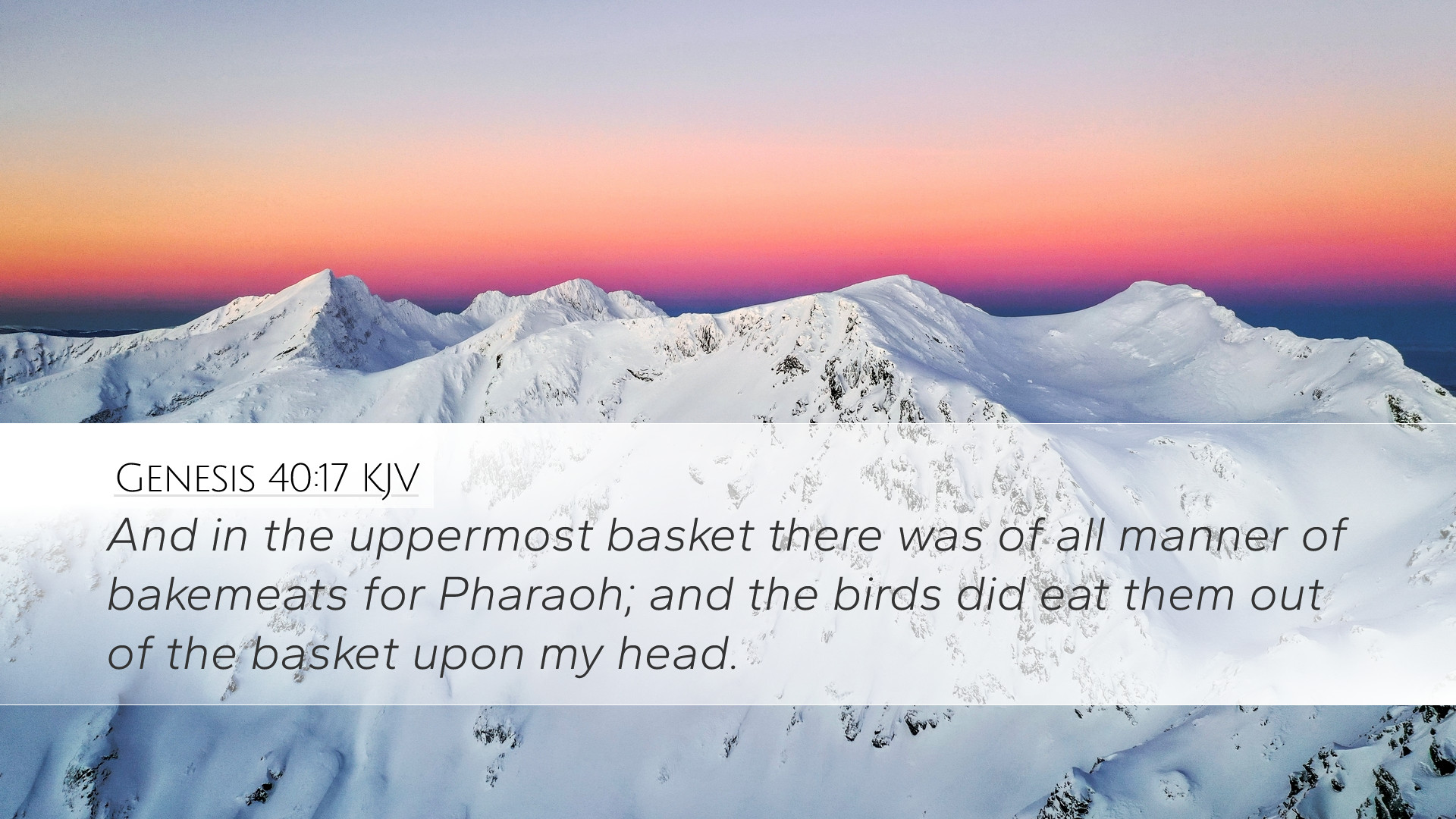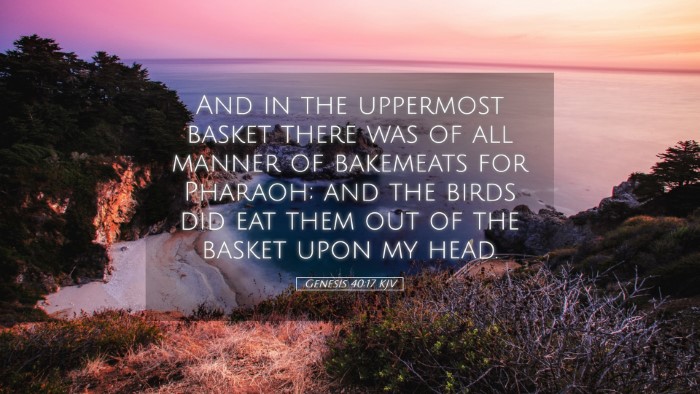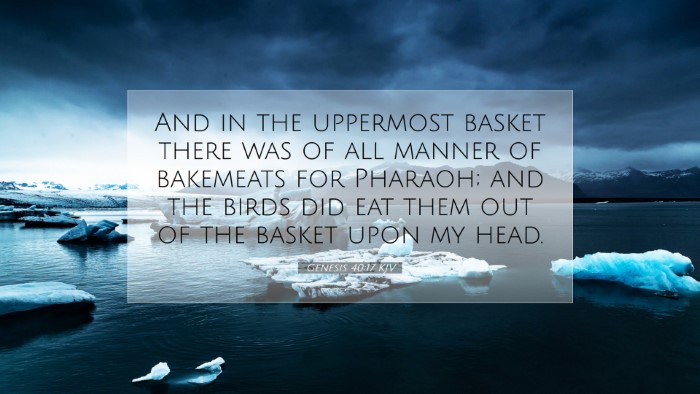Bible Commentary on Genesis 40:17
Genesis 40:17 reads: "And in the other was there a basket of black bread; and in the top of the basket were all manner of baked meats for Pharaoh." This verse is part of the account of Joseph's interpretation of the dreams of Pharaoh's chief butler and chief baker while they were imprisoned. The dreams have profound implications both for the dreamers and for Joseph himself. This commentary will explore various insights derived from public domain commentaries, paying attention to its theological and pastoral significance.
Contextual Setting
The Book of Genesis, written by Moses, serves as the foundation for understanding God's covenant with humanity. In Chapters 37 to 50, we find the narrative surrounding Joseph, which emphasizes the providential care of God and His sovereignty over human affairs.
Analysis of Genesis 40:17
In this verse, the imagery of the two baskets presents a stark contrast. The use of “black bread” implies a distinction between the conditions of the two men involved in the narrative. Below are insights from various commentators:
Matthew Henry's Commentary
Matthew Henry explores the symbolism of the baskets and the baked meats. He emphasizes that the "basket of black bread" illustrates the baker's poor fate. The blackness can symbolize guilt or judgment, suggesting that due to his impending fate, the content of his basket lacks vitality and gourmet quality.
Albert Barnes' Notes on the Bible
Barnes highlights the thematic elements of provision in this verse. He notes that while the butler’s basket may contain luxurious items—reflecting his role and favor with Pharaoh—the baker’s basket of black bread serves as a foreboding representation of his dire circumstances. It subtly hints at the divine justice being acted out within the narrative.
Adam Clarke's Commentary
According to Adam Clarke, the depiction of the "baked meats for Pharaoh" suggests an offering meant to delight and satisfy the king. This contrasts dramatically with the bread intended for the baker, which symbolizes rejection and the lack of blessing. Clarke underscores the duality of the blessings and curses inherent within God's sovereign design.
The Significance of Dreams
The dreams of the butler and baker are symbols of their respective destinies. The emphasis on food items signifies sustenance that relates not only to physical needs but also points to spiritual themes of nourishment, acceptance, and rejection by God.
- Dream Interpretation: The dreams signify God's sovereign control and providence, heralding each individual's fate.
- Foreshadowing: The imagery plays a significant role in foreshadowing the outcomes that are to unfold, especially with the symbolism related to each individual's profession and service to Pharaoh.
- God's Justice: There is a prophetic nature in the way food is employed as symbolism. It indicates divine judgment at play, ensuring that justice is meted out in line with God’s covenant promises.
Theological Implications
This verse brings forth various theological implications, particularly regarding God's providence and justice:
- The Nature of God: God is depicted as an active participant in the lives of individuals, orchestrating events for His purposes.
- Divine Sovereignty: The stark difference between the butler's and baker's fates indicates a God who is not indifferent to human affairs but engages in justice and righteousness.
- Human Responsibility: The events leading to these dreams reflect personal choices with broader repercussions, urging individuals to consider the weight of their actions in light of God's divine order.
Pastoral Applications
This passage is rich in applications for the church and the life of the believer. It is an invitation for pastors and theologians to draw lessons on faith, justice, and God's providential care:
- Encouragement in Trials: Just as Joseph provided hope through interpretation, believers can offer hope through Christ to those struggling with their own 'baskets of black bread.'
- Justice and Righteousness: Focus on how God requires honesty and integrity, which reflects the nature of His kingdom.
- Hope and Redemption: Remind congregants of the overarching narrative of Scripture, where ultimately, God redeems His people from despair.
Conclusion
Genesis 40:17 serves as a reminder that every element of the biblical narrative contributes to the unfolding story of God's engagement with humanity. Through dream interpretation, we see a critical moment in Joseph’s life, reflecting deeper truths about divine providence, justice, and the sovereign plan of God. The insights gleaned from public domain commentaries enrich our understanding, inviting further exploration into God's unfathomable ways.


